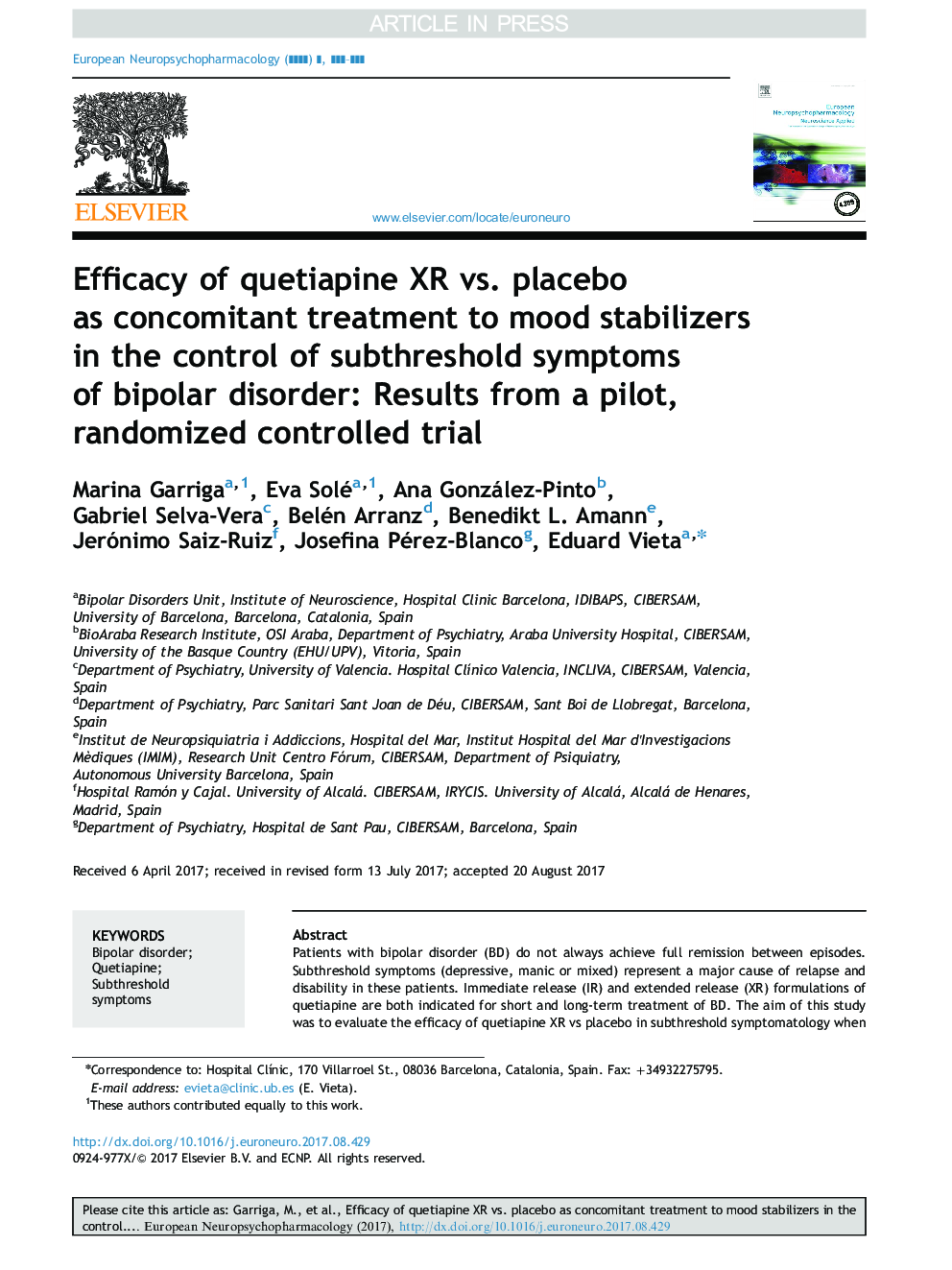| Article ID | Journal | Published Year | Pages | File Type |
|---|---|---|---|---|
| 4930283 | European Neuropsychopharmacology | 2017 | 11 Pages |
Abstract
Patients with bipolar disorder (BD) do not always achieve full remission between episodes. Subthreshold symptoms (depressive, manic or mixed) represent a major cause of relapse and disability in these patients. Immediate release (IR) and extended release (XR) formulations of quetiapine are both indicated for short and long-term treatment of BD. The aim of this study was to evaluate the efficacy of quetiapine XR vs placebo in subthreshold symptomatology when added to previous mood stabilizer treatment. A pilot phase IIIB, multicentre, prospective, placebo controlled, randomized, double blinded study of 12 weeks follow-up was performed (NCT01197846). Patients were randomized to quetiapine XR 300Â mg or placebo once daily. The primary outcome was the mean change between quetiapine XR and placebo from baseline to study endpoint (week 6) in the Montgomery-Ã
sberg Depression Rating Scale (MADRS). Quetiapine XR 300Â mg (n=16) significantly improved depressive subthreshold symptoms compared with placebo (n=16) after 6 weeks (P=0.021). Early response (reduction of at least the 20% of the MADRS total score) and remission rate (reduction in MADRS total score <8 and YMRS<8) did not show differences between groups. Quetiapine XR did not show superiority vs placebo when evaluating subthreshold manic symptoms, instead it was superior when evaluating functioning (GAF score) in BD type I patients (P=0.005). The most common adverse events were somnolence (9.1%), increased appetite, dry mouth and dizziness (6.8%). Quetiapine XR 300Â mg once daily was significantly more effective than placebo in depressive subthreshold symptoms. Adverse events were consistent with the known side effects of quetiapine.
Keywords
Related Topics
Life Sciences
Neuroscience
Biological Psychiatry
Authors
Marina Garriga, Eva Solé, Ana González-Pinto, Gabriel Selva-Vera, Belén Arranz, Benedikt L. Amann, Jerónimo Saiz-Ruiz, Josefina Pérez-Blanco, Eduard Vieta,
